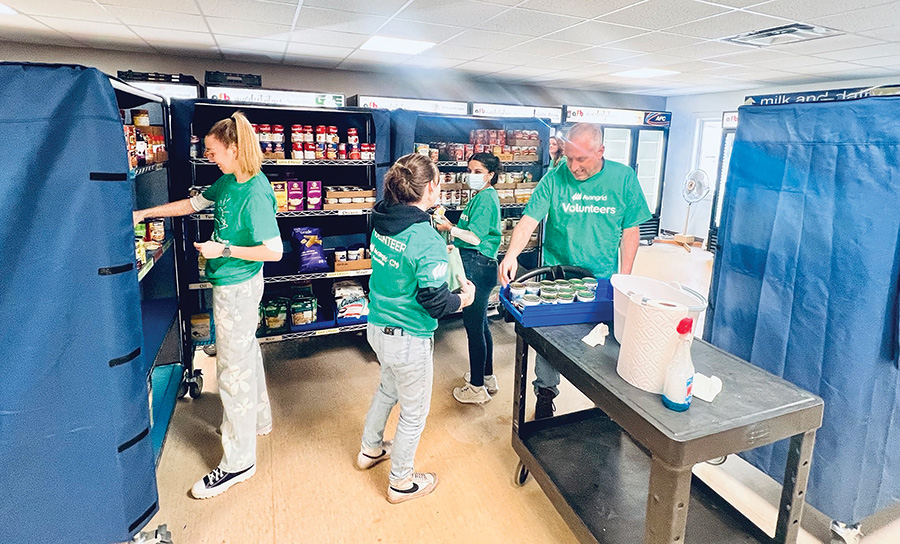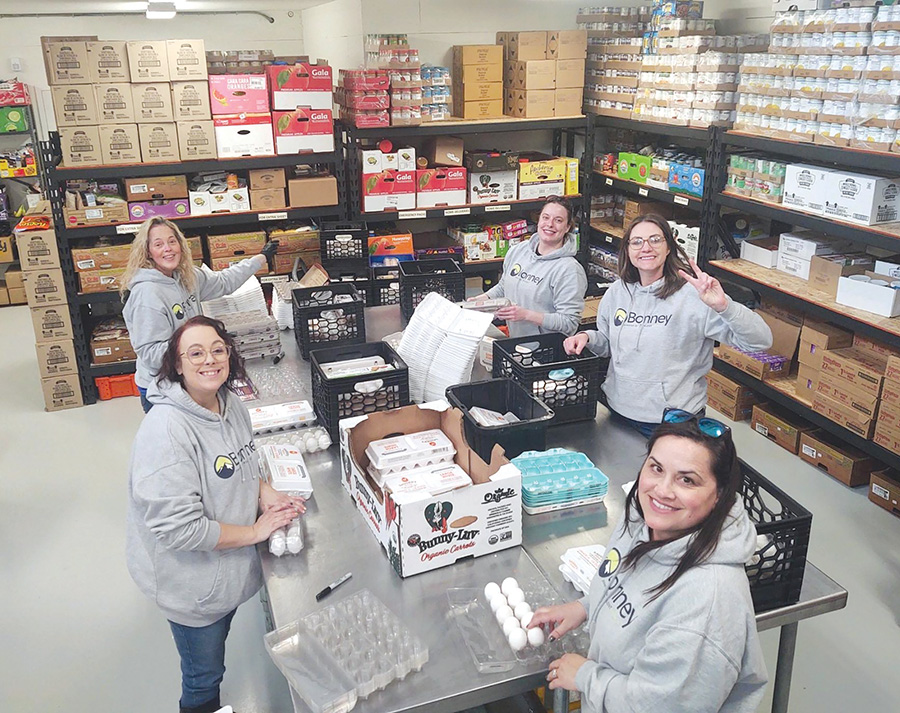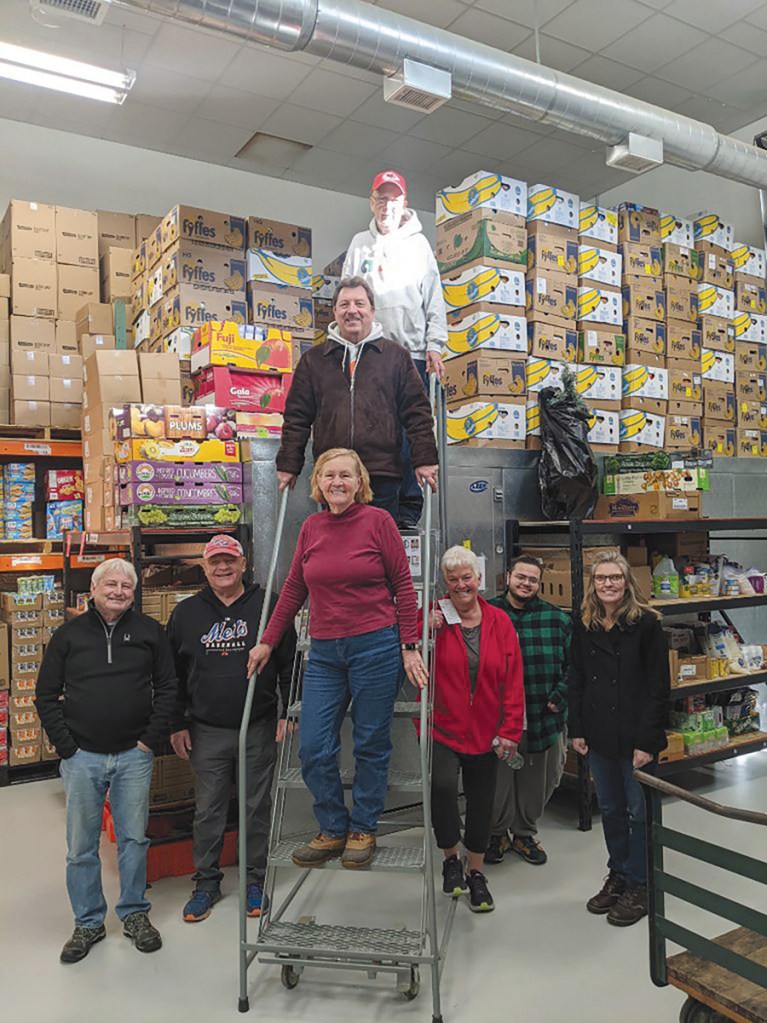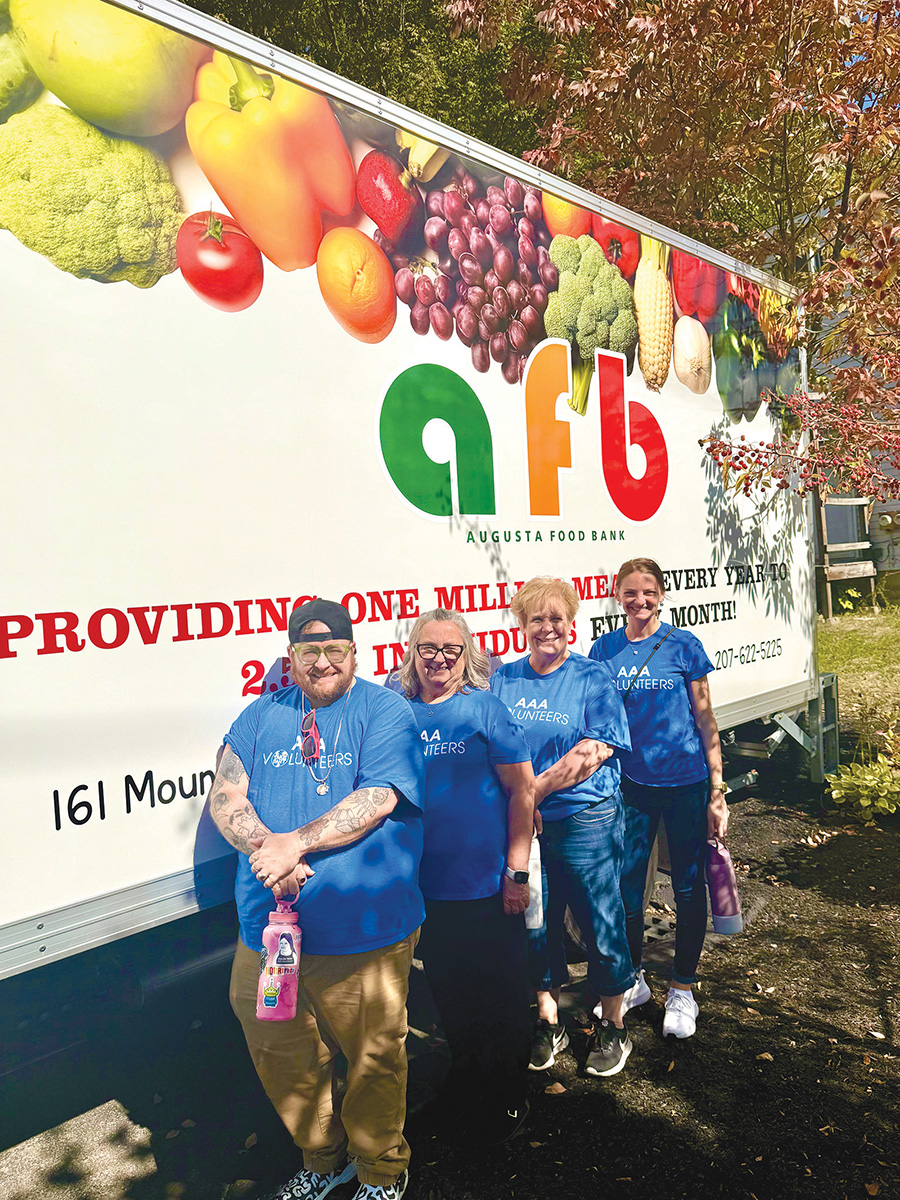The latest numbers indicate that food insecurity is increasing in Maine.
Good Shepherd Food Bank reports that about 190,000 Mainers are living with food insecurity, meaning they don’t have enough food to meet their basic nutritional needs each day. That includes approximately 50,000 Maine children, about one in five, who are facing hunger.
Rising food costs, changes to SNAP (Supplemental Nutrition Assistance Program) requirements, the government shutdown and inflation in general are all making it more difficult for families to meet their basic nutritional needs.
Good Shepherd Food Bank supplies food to 600 Maine partner agencies, like community food pantries, schools, soup kitchens, senior centers, shelters and youth programs, throughout the state. They report that more people are now depending on food assistance, and that the number of families relying on food pantries increased from 36,931 in 2022 to 50,383 in 2024 – and continues to increase.
Good Shepherd’s partner food pantries supply a variety of foods to Maine residents, including meat, poultry, fresh and frozen fruits and vegetables, dairy items, bread or bakery items and non-perishables. (The items may vary from week to week.) Some food pantries also supply other necessities, like toilet paper or cleaning supplies.
While Good Shepherd is a major supplier for local food pantries, local businesses also supply large amounts of food. Suppliers for the Augusta Food Bank include Hannaford, Walmart, Sam’s Club, Target, Shaw’s, PFG North Center, Core-Mark, Pine State, Rusty Lantern Markets, Bagel Mania, Sunrise Bagel and Sand Hill Bagel, among others.
“75% of our food comes from local suppliers,” said Bob Moore, CEO of the Augusta Food Bank.
Without volunteers there would be no food pantries
At the heart of all the food pantries are the many dedicated volunteers who keep things running smoothly. Good Shepherd reports that 75% of the food pantries rely completely on volunteers, with no paid staff. Heather Reynolds, Director of Marketing and Communications at Good Shepherd, said that without the dedicated volunteers there would be no food pantries.
Volunteering at a food bank is a common and well-received corporate or group activity as well. Committing a larger number of volunteers to a shift can give regulars much needed time off, create moments for team-bonding and generate a sense of well-being and engagement with employees’ communities.
Augusta Food Bank has about 100 active volunteers plus outside groups who contribute 12,000 hours annually, which is equivalent to six fulltime staff members. However, they’re always looking for more good people because circumstances can change on a day-to-day basis.

According to Moore, volunteers are responsible for pickups at local food suppliers, sorting produce, stocking shelves, answering phones, scheduling appointments, guiding customers through their shopping experience, home deliveries, IT needs, janitorial needs, and facility cleanings, inside and out. He said that board members provide guidance and leadership.
“Cony High School’s National Honor Society members deliver food to Chateau Cushnoc Apartments,” said Moore.
Volunteers range from 16 years old to well past retirement age. Some are in their 80s. Anyone under age 16 must be supervised by an adult. One of the issues faced by many food pantries is a volunteer workforce composed of mostly older adults. There’s a concern that as they “age out,” there may not be anyone to take their place. Fewer Millennials are volunteering because they’re too busy trying to make ends meet themselves.
There is no time requirement for volunteers. Some volunteer a few hours each week and others may volunteer once a month. Many of the younger volunteers only want to make short-term commitments.
Augusta Food Bank serves about 2,500 individuals each month. They plan to provide the equivalent of 1 million meals this year, Moore said. The food bank is located at 161 Mount Vernon Avenue and is open Monday – Thursday from 8:00 am to 3:30 pm. Volunteer applications are available online at augustafoodbank.org.
Waterville Food Bank is an all-volunteer operation run by about 100 active volunteers of all ages, including at least one volunteer who is 89 years old. Director of Volunteers Beth Thomas said that they are fortunate to have a number of long-term volunteers. She happens to be one of them, as she’s been volunteering there for 16 years.
Waterville Food Bank provides the same type of foods as the Augusta Food Bank; they also provide essential household items. They’re located inside Pleasant Street United Methodist Church at 61 Pleasant Street in Waterville and open Monday to Thursday from 9 a.m.-11 a.m. and Monday evenings from 5:30 p.m.-7 p.m. Food vouchers are distributed at the Waterville Food Bank Monday to Thursday from 8:30 a.m.-10:30 am and Monday evenings from 5:30 p.m.-6:30 pm. They are closed on holidays.
According to Thomas, food bank volunteers don’t just help to provide food for their clients and carry out the other operations of the food bank. They also take a personal interest in their clients’ wellbeing. She said they notice when someone is having a difficult time and make an effort to listen to those people and offer encouragement. They remember which clients need special attention and they check on those individuals.
Thomas overheard a customer share that he was having a hard day and was feeling down when he came to the food bank, but he was cheered up by the volunteers before he left that day.
“Our volunteers are important,” said Thomas. “We couldn’t make it without them.”
Anyone interested in volunteering at the Waterville Food Bank can call 207-616-0363 or email [email protected] to learn more.


